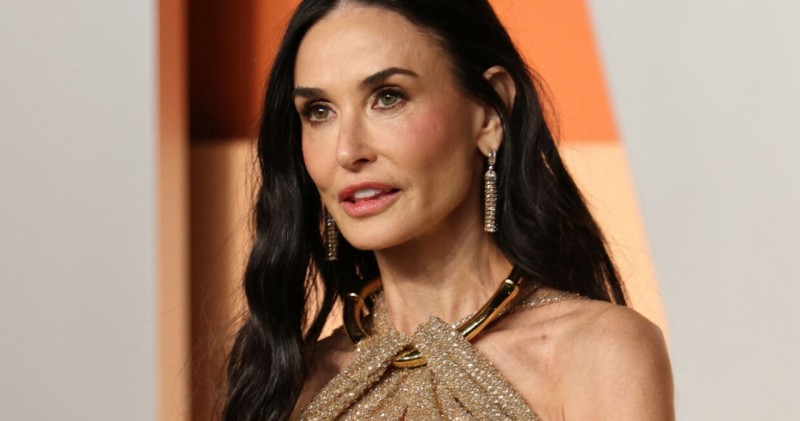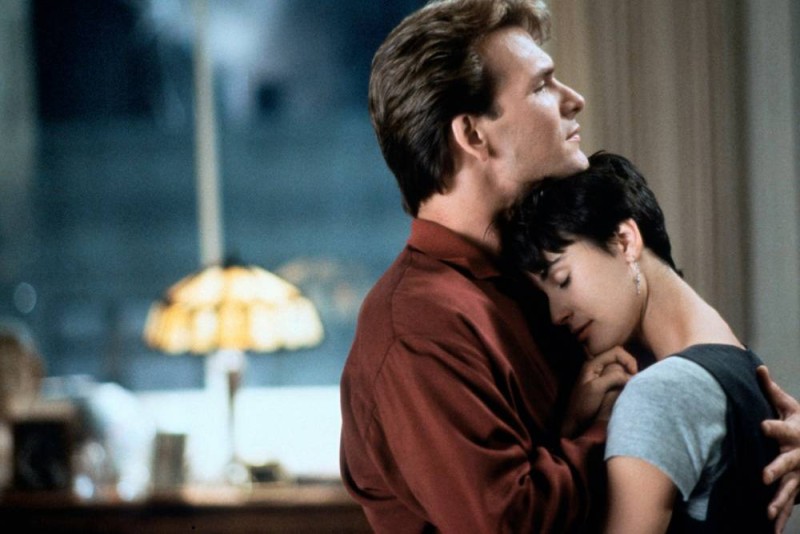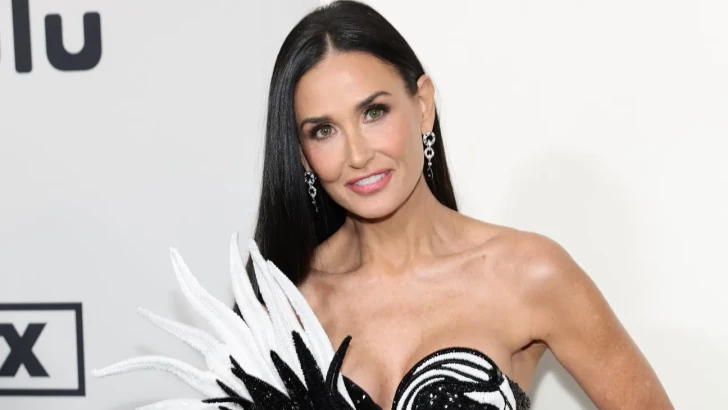Let's be real—Demi Moore's bank account is something else. At 62, she's not just surviving in Hollywood, she's absolutely thriving. With her recent Golden Globe win for "The Substance" and that killer Oscar nomination, everyone's suddenly asking: just how rich is this woman? Well, buckle up, because the answer might surprise you.
How Demi Moore Stacked Her $200 Million Fortune

Here's the thing about Moore's wealth—it didn't happen overnight. This woman has been grinding for over 40 years, and it shows. Her money comes from all over the place: those massive movie paychecks (we're talking $60 million just from acting), smart real estate deals, film producing, and let's not forget that sweet $90 million divorce settlement from Bruce Willis. Talk about making every dollar count!
But here's what's crazy—her biggest payday actually came with her harshest criticism. Back in 1996, she made history by becoming the highest-paid actress ever with that $12.5 million Striptease check. Sure, the movie got roasted, but Moore knew exactly what she was doing. As she put it, this wasn't just about her—she was "changing the playing field for all women."
Demi Moore's Humble Start and First Real Money

You'd never guess it now, but Moore's story starts pretty rough. Born in Roswell, New Mexico (yeah, the alien place), she bounced around constantly as a kid because her family was always broke and moving for work. School? She ditched it at 16. But here's where it gets interesting—instead of giving up, she hustled her way into a receptionist job at 20th Century Fox through her boyfriend's mom. Smart move, right?
While working that day job, she was secretly taking acting classes and even signed with a modeling agency. But the real game-changer? Landing that soap opera gig on "General Hospital" right before turning 19. She was pulling in $750 per episode as investigative reporter Jackie Templeton—and for the first time in her life, she didn't need a side hustle.
"It was like a real job where I was going to have an actual salary," Moore remembers. "I could live by doing this thing that I loved and hoped I could do." That steady paycheck? That was her first taste of financial freedom, and she never looked back.
When Demi Moore's Net Worth Absolutely Exploded

Everything changed with "Ghost" in 1990. This movie was massive—we're talking $505 million worldwide massive. Suddenly, everyone knew who Demi Moore was. The crazy part? She only made $350,000 for that career-defining role. But hey, sometimes you gotta play the long game.
After "Ghost" blew up, Moore's paychecks started getting seriously impressive. Check this out: $3 million for "A Few Good Men," then $5 million for "Indecent Proposal," followed by $6 million for "Disclosure." Each movie meant a bigger check, and she was smart about it—always asking for what she was worth.
The Record-Breaking Demi Moore Net Worth Moment

Then came the big one—that legendary $12.5 million Striptease deal that broke the internet before the internet was even a thing. Moore became the first actress to hit the $10 million mark, which would be like $25 million today. Wild, right?
But here's what people don't get about that whole situation. Moore wasn't just asking for crazy money because she could. She had a point: "It wasn't about comparing myself to [Bruce Willis]. Yes, I saw what he got paid. It was really more about, 'Why shouldn't I? If I'm doing the same amount of work, why shouldn't I?'"
The backlash was brutal. People called her greedy, said she only got paid because she was playing a stripper. But Moore stood her ground: "I understood that anybody who steps out first is going to take the hit. That goes for anybody challenging the status quo."
Where Demi Moore's Net Worth Stands Today

Fast forward to 2025, and Moore's sitting pretty with that $200 million net worth—and it's only going up. Her comeback story with "The Substance" has been absolutely incredible. We're talking Golden Globe winner, SAG Award winner, Oscar nominee—the whole nine yards.
The best part? She's not done yet. "To go from the beginning of this last year feeling like I was never part of the conversation to being acknowledged in a critical way for my work has just allowed me to open up my belief in greater possibilities," she told TIME magazine. That's the attitude of someone who's just getting started on her next chapter.
Demi Moore's Secrets to Success: What She's Learned

After four decades in Hollywood, Moore has figured out some pretty solid life lessons that anyone can use:
Success Isn't About the Money: "Success has to be an inside job," she always says. "Happiness does not come from external material things. It's how we choose to deal with those things that happen in our lives that matters." Real talk—all the money in the world won't fix your problems if you're not good with yourself first.
Get Comfortable Being Uncomfortable: Moore's big on taking risks. "Once you've tasted a bit of success, it's more challenging. We have to continue to be willing to take a risk so that we don't get too safe." She believes the magic happens when you're willing to fail—even when you've got something to lose.
Your Rough Start Can Be Your Superpower: Instead of letting her tough childhood hold her back, Moore flipped the script. "I had, as a very young person with no safety net, a willingness to take risks because I had nothing to lose. It's given me things that, if I look back, I wouldn't change."
Stop Being Your Own Worst Enemy: Her recent work in "The Substance" really drove this home. "The violence that we hold against ourselves, the way in which we can speak negatively in our thoughts"—she realized how important it is to actually like yourself.
Live in the Now: Moore's learned not to stress too much about the future. "I'm always careful about not projecting too much into the future. It's just to keep me staying present." Smart advice from someone who's seen it all.
The woman's philosophy is pretty simple but powerful: everything happens for a reason, not against you. That mindset has helped her build an incredible fortune while staying sane in Hollywood—which, let's face it, isn't easy to do.
 Usman Salis
Usman Salis

 Usman Salis
Usman Salis


